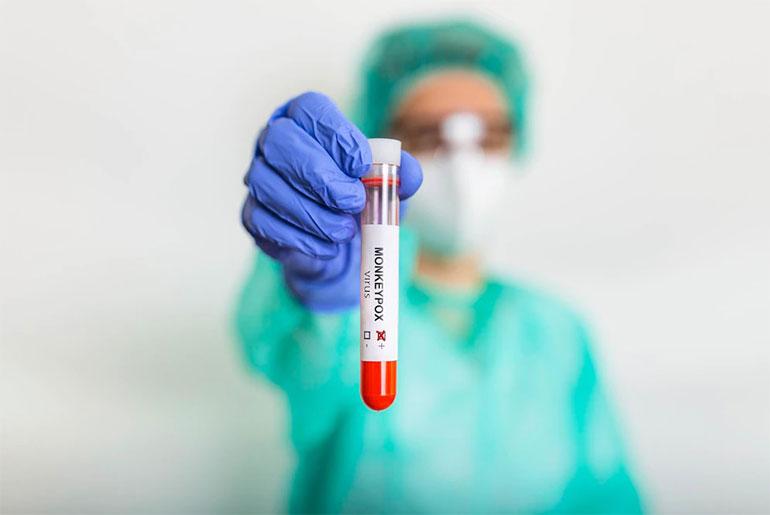On Saturday (July 2), a study published in The Lancet Infectious Diseases journal cited symptoms of monkeypox patients in the UK differ from those observed in previous outbreaks elsewhere in the world.
The researchers from the Lancet Infectious Diseases observed 54 patients who attended sexual health clinics in London, UK and were diagnosed with monkeypox during a 12-day period in May this year. The researchers collected data from monkeypox patients at four sexual health centres in London, UK. Confirmed cases were defined as individuals with laboratory-confirmed infection using a RT-PCR test.
They recorded data contained the patient’s travel history, sexual history, and clinical symptoms.
The study finding suggests that patients in this group had a higher prevalence of skin lesions in the genital and anal area and a lower prevalence of tiredness and fever than in cases from previously studied outbreaks of monkeypox.
Based on these findings, the researchers of the Lancet Infectious Diseases suggest that current case definitions for ‘probable cases’ of monkeypox should be reviewed to help identify cases. They also predict that the high prevalence of genital skin lesions in patients and the high rate of co-occurring sexually transmitted infections means that sexual health clinics are likely to see additional monkeypox cases in the future. The researchers call for additional resources to support services in managing this condition.
According to Nicolo Girometti, from the Chelsea & Westminster Hospital National Health Service (NHS) Foundation Trust said, “Currently, the UK and several other countries are seeing a rapid increase in monkeypox cases among individuals attending sexual health clinics, with no apparent links to countries where the disease is endemic.”
“Monkeypox is a novel diagnosis within the sexual health setting and our study, the first to publish on cases from this UK outbreak, will support future case finding and clinical care, Girometti added.
The 54 patients observed in this study represent 60 per cent of the cases reported in the UK during the 12-day study period in May this year. All except two of the patients in the cohort were not aware of having been in contact with a known case and none reported travel to sub-Saharan Africa, however many had recently visited other European countries.
All patients identified as men who have sex with men and there was a median age of 41, the researchers said.
As many as 90 per cent of the patients who responded to the questions on sexual activity reported at least one new sexual partner during the three weeks prior to symptoms, and almost all reported inconsistent condom use in this same time period.
The patients were all symptomatic and afflicted with skin lesions; 94 per cent of patients had at least one skin lesion on the genital or perianal skin. Mostly the patients had a mild illness and recovered while isolated at home, but five individuals were admitted to the hospital due to pain or infection of the skin lesions. All subsequently recovered and were discharged with a median of seven days of hospital admission.
Referring to the transmission among patients, Ruth Byrne, from the Chelsea & Westminster Hospital NHS Foundation Trust said, “The commonly observed symptom of skin lesions in the anal and penile areas, and the fact that a quarter of the patients tested positive for gonorrhoea or chlamydia at the same time as the monkeypox infection, suggests that transmission of the monkeypox virus in this cohort is occurring from close skin-to-skin, for example in the context of sexual activity.”
A lower proportion of patients in the group reported feeling weak and tired or having a fever than in studies on cases in previous outbreaks, the researchers said. Also, 18 per cent of patients in the group did not report any early symptoms before the onset of skin lesions, they added.
In a study published in the journal Nature Medicine, Portuguese researchers found samples of the virus had 50 mutations in its DNA compared to 2018. That’s between six and 12 times the number scientists would normally expect over the same time period.
Disclaimer:
The information contained in this article is for educational and informational purposes only and is not intended as a health advice. We would ask you to consult a qualified professional or medical expert to gain additional knowledge before you choose to consume any product or perform any exercise.









